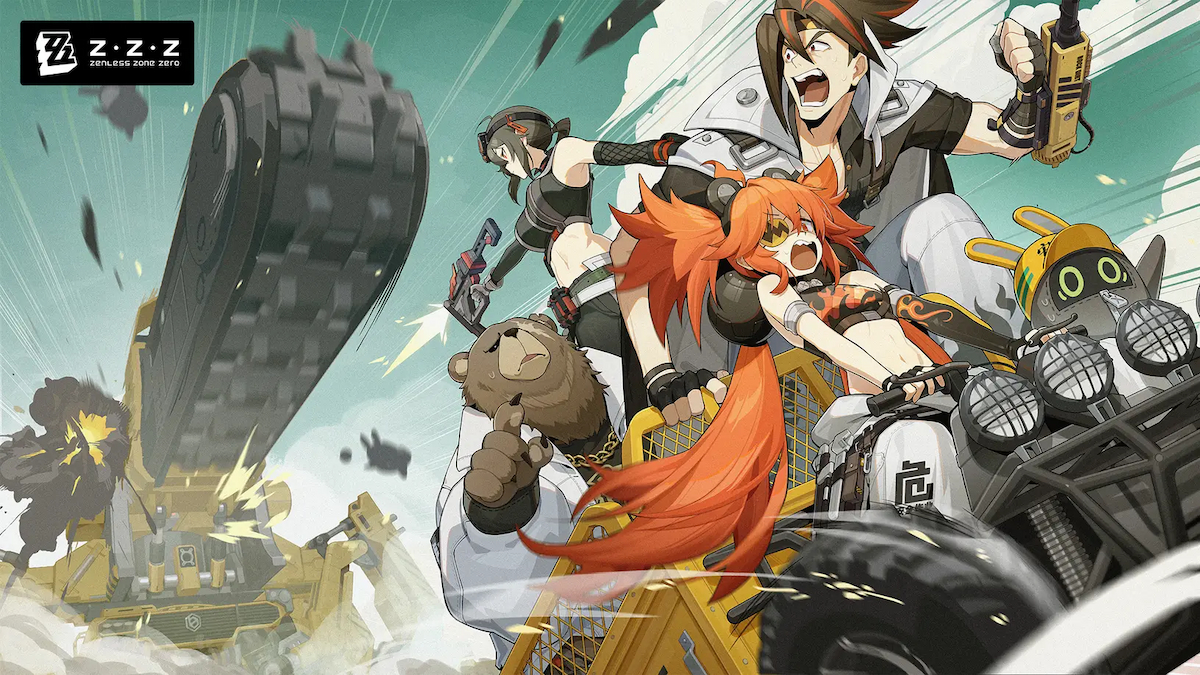Rhythm Tengoku Gold (DS, Japanese import)
Developed by Nintendo
Published by Nintendo
Released on November 1, 2008(US)
Colette Bennett:
Obviously, the first thing you’ll notice about Rhythm Tengoku Gold is that it’s gotten a serious upgrade as far as looks go from it’s predecessor. The look of the game itself stays true to the original, but everything is crisper and more clear, and the DS is held book-style to play the games (you touch the DS stylus on the right side of the screen and the action happens on the left).

For newcomers to the series, Rhythm Tengoku is a series of minigames you play that rely heavily on the rhythm of the music you hear in the background. Each lasts under a minute, often features quirky characters that will make you laugh, and is thoroughly addictive in every way. I hate posting pictures from the game, because they do absolutely nothing to communicate its true charm, which lies in the combination all the elements when they come together.
On the menu screen, you will see a grid. Each vertical line contains four games and a “remix”, which is a clever compilation of bits of all the games together. One of the downfalls of playing the import is that you cannot understand the short training segment before each game, so you have to wing it, but it really isn’t too hard — all you do in most games is imitate the other characters. Getting it just right, however, takes patience and practice.

By getting a perfect score on a level, you will earn a gold “frame” around that game. As you progress, the game will give you the oppurtunity to try for a flawless score by circling a random game with a floral green border. If you pass the level without missing any beats, you unlock the game’s song and can access it anytime from a separate part of the menu.
After making it through six of these sets of games, you will technically “complete” the game … although for completionists and perfectionists, this is really only the beginning. At this point you unlock the advanced stages (four sets in total), which will challenge you to rock out many of the levels double time. Fear the 8th mix, my friends. FEAR IT.

If you are a fan of the first game, I know you’re wondering: Yes, but does it hold up to the original? In my opinion, it certainly does, although there is something about the first game that makes it just a smidge better, but I believe it’s the grumpy punk rocker in me that likes how incredibly individual and kooky the first game was. The music, characters and games in Gold are certainly of the caliber that you’d expect from the series, and ought to please any fan hoping for more.
While Rhythm Tengoku Gold certainly isn’t for everybody, I can definitely say any fan of rhythm games and Japanese flavor will adore it. If you do find yourself yelling “SCRATCHO!” at your friends after hours of playing it, you’ll know you’ve become a true addict (and find it isn’t so bad to be one, either).
Score: 9.0 – (Fantastic. Negligible flaws. Otherwise very, very good; a fine example of excellence in the genre.)
Dale North:
In between 100-plus hour role-playing epics and involved multiplayer online fragfests, it would be nice to take in a videogame that is simple and entertaining. This ideal “break” game would be easily accessible and infinitely playable. It would be something you could switch on, have a good time with for a few minutes, and then switch back off. If you’ve been looking for something like this, Rhythm Tengoku Gold will fit the bill perfectly.
You only need a stylus and a decent sense of rhythm to have a good time. Believe it or not, you don’t need any Japanese knowledge to enjoy this title, as the introduction/training screens do a pretty fair job of visually teaching you how to play each of the short levels. But, as Colette warned, you’ll need a bit of patience if you aim to finish Tengoku‘s every challenge.
Imagine an insane, strange world where life cannot go on with out the tap of your stylus, and you’ll be pretty close to the world of Rhythm Tengoku Gold. Dancing frogs can’t dance, choir boys can’t sing, and farmers can’t harvest turnips without your rhythmical help. If it this all sounds crazy, that’s because it is. The insanity of what you’re actually conducting is where most of RTG‘s charm lies.
Kero Kero Dance has the best singing frog ever
Instead of mashing buttons, you’ll either tap or swipe your stylus across the touch screen. For some fans of the original GBA title, this new mechanic took a bit to get their heads around, but it all starts to come together after a couple of different stages are under their belts. After you’ve learned the audible cues from the training mode, you can listen for them and actually play most of these levels blind. Sometimes this may even help. But, after you get it down, I recommend looking at the screen. The music is always nice, but the total experience is what makes this title great.
I would say to those that complain about sensitivity or timing of certain levels that they’re doing it wrong. Some are tapping when the game calls for a swipe. Some other levels require holding the stylus still on the screen for a time. If you understand what each trial expects, I think it’s clear that the timing is spot on. It may be that people begin questioning the level of polish when things get difficult. The latter levels are very difficult, but that has everything to do with design and nothing to do with timing issues.
Men’s Chorus… on crack
Once you meet the standards set on each individual trial, you’ll be awarded a medal. Your medal number determines which bonus games and rhythm “toys” are available in the Medal Screen, a sort of bonus game play menu. For example, with five medals, you can unlock a coin flipping game, which is boring but pretty funny. For 12, you can play a great cowbell endurance game, which actually times you on how long you can keep the beat.
RTG is also packed with lots of fun Easter eggs and secrets. We won’t spoil them all, but here’s an example of a farily obvious one. After earning one medal, you’ll unlock a bland toy which lets you basically slide a business card around in a card box to make noise. Silly, I know. Later, 4 medals unlocks a touch tone telephone toy. If you look back at the business card, you’ll see a phone number. Type that into the phone and you’ll unlock something cool.
Ever wonder what all this SCRATCHO! stuff was about?
This is the type of game the Nintendo DS was made for. Rhythm Tengoku Gold‘s quick challenges, ease of accessibility, great songs, and insane graphics combine to make one of the most entertaining and addictive games on the console yet, not to mention one of the most memorable and quotable. We will not be surprised if this is the game everyone is talking about when it launches in the US later this year.
Score: 9.0 – (Fantastic. Negligible flaws. Otherwise very, very good; a fine example of excellence in the genre.)
Overall Score: 9.0




